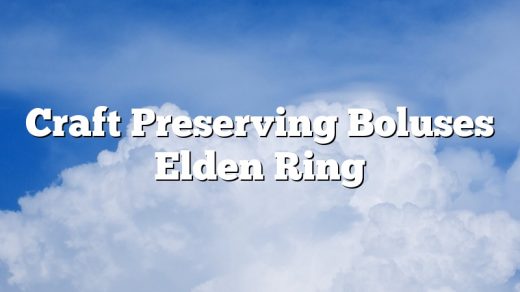What Is Hobby Farming?
Hobby farming is a type of small-scale farming where the farmer grows crops or raises animals for fun or for a supplementary income. It is not a full-time profession, but rather a leisure activity that the farmer enjoys. Hobby farmers typically have a small plot of land, often less than an acre, and they may keep a few animals or grow a small number of crops.
Hobby farming has become increasingly popular in recent years as more people are looking for ways to connect with their food. It can be a fun and rewarding way to spend your time, and it can also provide a small supplemental income.
If you’re interested in starting a hobby farm, there are a few things you need to know. First, you’ll need to find a plot of land that is suitable for farming. You’ll also need to learn about the specific crops and animals that you want to raise. And lastly, you’ll need to develop a plan for how you will manage your farm.
If you’re not sure where to start, there are a number of resources available online and in print. There are also a number of organizations and groups that focus on hobby farming, and they can provide you with valuable information and support.
Hobby farming is a great way to get back to your roots and connect with your food. It’s also a fun and rewarding way to spend your time. If you’re interested in starting a hobby farm, be sure to do your research and get familiar with the basics of small-scale farming.
Contents
What is considered hobby farm?
A hobby farm, also known as a small farm or mini farm, is a farm whose primary income does not come from farming. Most of the work on a hobby farm is done by the owner and his or her family.
A hobby farm can be as small as an acre of land, or it can be several hundred acres. The size of the farm depends on the type of crops or livestock raised.
Hobby farms are becoming increasingly popular as people are looking for a way to get back to the land. They can provide a way to connect with nature, get exercise, and produce their own food.
There are many different types of hobby farms. Some raise crops, while others raise livestock. Some focus on organic farming, while others raise heritage breeds of livestock.
The most important thing for a hobby farm is to be self-sufficient. The goal is to produce as much of the food and other necessities as possible on the farm. This can include growing your own vegetables, raising chickens for eggs, and raising livestock for meat.
A hobby farm can be a great way to get started in farming. It is a way to learn the basics of farming without making a large investment. Hobby farms can also be a way to get into farming if you live in an urban area and don’t have access to land.
If you are interested in starting a hobby farm, there are a few things you need to consider. First, you need to decide what you want to raise on the farm. Then, you need to decide what type of farm you want to create. Finally, you need to figure out the costs and how you will make a profit.
A hobby farm can be a great way to get back to the land and connect with nature. It can also provide a way to produce your own food.
How many acres is considered a hobby farm?
A hobby farm is a small farm that is typically used for recreation or as a hobby. While there is no definitive answer to the question of how many acres is considered a hobby farm, it is generally agreed that a hobby farm is smaller than a traditional farm. In most cases, a hobby farm is less than 50 acres.
There are a number of reasons why someone might choose to own a hobby farm. For some people, it is a way to connect with their rural roots. Others may view it as a way to get back to basics and enjoy the simple pleasures of life. Hobby farms can also be a great way to teach children about agriculture and the food production process.
If you are thinking about purchasing a hobby farm, there are a few things you need to keep in mind. First, you need to make sure that the property is big enough to accommodate your needs. Second, you need to be aware of the regulations governing hobby farms in your area. Finally, you need to make sure that you have the resources to maintain the property.
What does IRS consider a hobby farm?
If you’re thinking of turning your hobby into a small farm, you should be aware that the IRS may consider your farm a hobby, rather than a business, if you don’t make a profit. Here’s what you need to know about the IRS’s definition of a hobby farm and the tax implications of running one.
What is a Hobby Farm?
The IRS defines a hobby farm as a farm where the primary purpose is not to make a profit. In order to be considered a business, a farm must generate a profit in three of the five years prior to the year in question. If your farm doesn’t meet this criteria, the IRS may consider it a hobby and you may have to pay taxes on any income you generate from it.
What are the Tax Implications of Running a Hobby Farm?
If the IRS classifies your farm as a hobby, you will be required to pay taxes on any income you generate from it. This includes both the income you earn from selling produce or livestock and any money you receive from government subsidies or other farm-related programs.
There are a few things you can do to reduce the tax burden of running a hobby farm. One is to make sure you claim all of the expenses you incur in running the farm. This includes the cost of seeds, fertilizer, tools, and other supplies, as well as the cost of housing and feeding your animals. You can also deduct the cost of your insurance, property taxes, and mortgage interest.
Another thing you can do is deduct the value of your labor. This includes the hours you spend caring for your animals and crops, as well as the time you spend repairing fences, buildings, and other farm infrastructure.
It’s important to keep in mind that the deductions you claim for your hobby farm may be reduced if you also have a job outside the farm. This is because the IRS assumes that you are able to deduct the expenses of your job from your income, which reduces the amount of expenses you can claim for your farm.
If you’re thinking of starting a small farm, it’s important to understand the IRS’s definition of a hobby farm and the tax implications of running one. By taking advantage of the deductions available to you, you can help reduce the tax burden of owning a small farm.
What do hobby farmers do?
So you’re interested in becoming a hobby farmer? That’s great! There are a lot of things to consider before making the switch, but the benefits can be huge. So what do hobby farmers do?
First and foremost, a hobby farmer is someone who grows crops or raises animals for fun, not for a living. This is in contrast to commercial farmers, who rely on farming as their main source of income.
For hobby farmers, the main goal is typically to produce their own food, or to raise animals for meat, eggs, or milk. They may also sell some of their produce or livestock at local farmers markets, or keep a small flock or herd of animals for personal use.
Hobby farming can be a great way to get back to basics and connect with nature. It can also be a fun way to learn new skills, and to connect with other people who share your passion for farming.
If you’re thinking about becoming a hobby farmer, here are a few things to keep in mind:
– Hobby farmers typically have a smaller amount of land than commercial farmers. This may be due to a variety of factors, such as the cost of land or the availability of land in their area.
– Hobby farmers typically have less expensive equipment than commercial farmers. This is because they don’t need to outfit their farm with the latest and greatest technology.
– Hobby farmers typically have less overhead than commercial farmers. Again, this is because they don’t need to invest in expensive equipment or technology.
– Hobby farmers typically sell their produce and livestock at a lower price than commercial farmers. This is because they’re not trying to make a profit.
– Hobby farmers typically have less strict regulations to adhere to than commercial farmers. This is because their farming operation is much smaller.
So if you’re interested in becoming a hobby farmer, what’s the best way to get started? The first step is to do your research. Talk to other hobby farmers in your area, and find out what crops and animals work best in your climate and geographical region.
You may also want to consider taking some farming classes or workshops. This can be a great way to learn the basics of farming, and to meet other people who share your passion for this lifestyle.
Finally, don’t be afraid to get your hands dirty. Farming is a lot of hard work, but it’s also a lot of fun. So get out there and start growing!
Can a hobby farm be a tax write off?
There are a few things to consider when it comes to whether or not a hobby farm can be a tax write off. The most important factor is whether or not the farm is considered a business. If it is, then many of the expenses associated with the farm can be written off on your taxes. If it is not considered a business, then you can only deduct expenses that are related to the hobby itself, and not the farm itself.
There are a few things you can do to make your hobby farm more businesslike and therefore eligible for tax write offs. For example, keeping track of your income and expenses, and maintaining a separate bank account for the farm are all good ways to show that you are treating the farm as a business.
It is also important to note that not all expenses can be written off. The most common expenses that can be written off are those related to the farm itself, such as feed, seed, fertilizer, and livestock. However, expenses related to things like your home, car, and clothing cannot be written off.
If you are thinking of starting a hobby farm, it is important to consult with an accountant to find out if you are eligible for any tax write offs.
What is the difference between a hobby farm and a homestead?
What is the difference between a hobby farm and a homestead?
A hobby farm is a small farm where the owner raises animals and crops for pleasure and not for profit. A homestead, on the other hand, is a self-sufficient farm where the owner grows their own food, raises their own animals, and manufactures their own goods.
Hobby farms are typically much smaller than homesteads. Hobby farms may have only a few dozen chickens or a couple of cows, while homesteads can have hundreds of animals. Hobby farms also typically focus on one or two types of agriculture, while homesteads are more diversified.
Homesteaders are also more likely to produce their own energy and to recycle and reuse their resources. They may use solar panels to generate electricity, or use rainwater to irrigate their crops.
Generally, hobby farms are for people who want to enjoy the rural lifestyle without making a full-time commitment to farming. Homesteads are for people who want to be self-sufficient and who are willing to make the necessary sacrifices to achieve that goal.
Can I write off my hobby farm?
Yes, you can write off your hobby farm. A hobby farm is a property that you use for agricultural or horticultural activities, including raising livestock and poultry, as a trade or business. You can deduct the cost of your hobby farm as a business expense.
There are a few things to keep in mind when deducting the cost of a hobby farm. First, you must maintain accurate records of your expenses. This includes receipts, bank statements, and other documentation of your expenses. You can only deduct expenses that are related to your hobby farm. For example, you cannot deduct the cost of your mortgage or your car.
Second, you must report any income from your hobby farm on your tax return. This includes income from sales of livestock or crops, as well as income from renting out the property. You will need to report this income on Schedule F of your tax return.
Finally, you may be able to claim a loss on your hobby farm. If your expenses exceed your income, you can claim this loss as a deduction on your tax return. This may reduce your taxable income and save you money on your taxes.
If you are thinking of starting a hobby farm, it is important to understand the tax implications. Talk to an accountant or tax advisor to learn more about how to write off your hobby farm.




